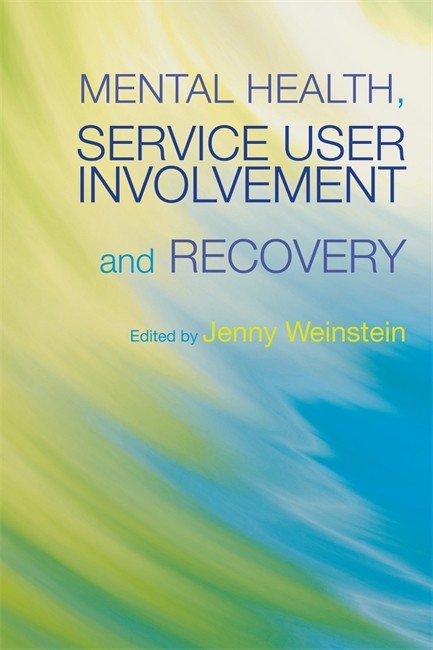CONTENTS: Introduction. Jenny Weinstein, London South Bank University. 1. Introduction to Mental Health Service User Involvement. Dr. Philip Kemp, London South Bank University. 2. The Ethos of Involvement as the Route to Recovery. Julie Gosling, Advocacy in Action. 3. Building a Compelling Future. Humphrey Greaves, mental health service user. 4 Circle of One: Experiences and Observations of a BME Service User/Consultant. Humphrey Greaves. 5. Becoming an Expert by Experience. Aloyse Raptopoulos, mental health service user/consultant 6. The Road to Recovery. Aloyse Raptopoulos. 7. User Involvement in their own Treatment and Care. Jenny Weinstein and Other Service Users. 8. User Involvement in Challenging Stigma and Discrimination in Mental Health. Jenny Weinstein with Users from Jewish Care Education Project. 9. User Involvement in Planning and Developing Services. Jenny Weinstein with Southwark MIND Council Members. 10. User Involvement in Research. Professor Tony Leiba, North East London Mental Health Trust and London South Bank University. 11. The Creative Involvement of Service Users in the Classroom. Dr. Philip Kemp. 12. Meeting the Challenge of Working with Young Care Leavers in Delivering Social Work Training. Tom Wilks, London South Bank University and Liz Green, Goldsmiths College University of London. 13. Conclusion: the Way forward for Service User Involvement and Recovery. Jenny Weinstein. List of Contributors. Index
Request Academic Copy
Please copy the ISBN for submitting review copy form
Description
Involvement, personalisation and recovery have become policy buzzwords of our age. If you want serious help to negotiate them, to know what they can really mean, then read this book. It is a truly collaborative enterprise, bringing together service user and practitioner voices, knowledge and experience, to help people take back control of their lives as mental health service users/survivors and regain their place in the world. This book is not only a valuable sign of the desire, growing among service users and services, to move to more person-centred approaches to support. It is also a handbook to help achieve this, offering practical, down to earth as well as philosophical and value-based insights and understanding for all committed to this goal.

